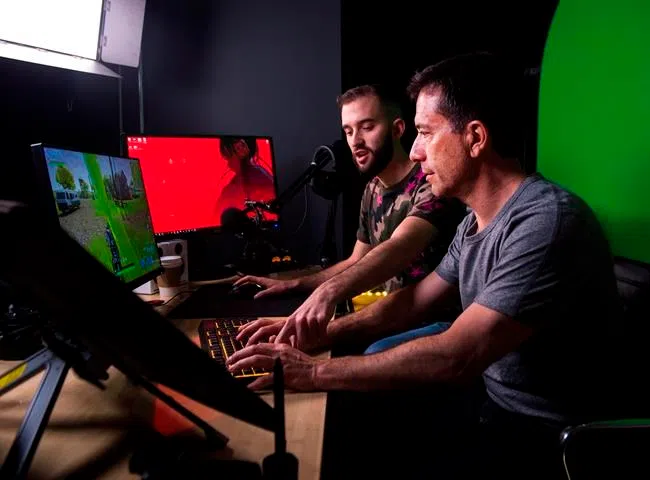
Parents of YouTube stars on dealing with kids who want to skip school to stream
TORONTO — When people ask Michael Latsky about his kids he starts by proudly sharing that his eldest son is going to be a doctor. Then, with his head hung low, he’ll mutter that his youngest, Robert, dropped out of university to pursue his dream of becoming a “YouTube personality.”
But it’s just a tongue-in-cheek act he plays for laughs. In reality, he’s proud that Robert — known online as MrWoofless for his video gaming content — discovered the “new economy” seven years ago. He no longer worries about whether he made the right choice.
“If you told me he should go back to school I wouldn’t stop laughing,” says Latsky, recalling a few milestones of success that convinced him his 26-year-old had chosen the right career path.
“One of them was that he seemed to have enough money to go to my money manager, and for the money manager to be very interested in carrying his account — that was one indication. I made him go to a money manager to make sure he was under control, because a 26-year-old with whatever income he’s making may not be able to psychologically handle it.”
